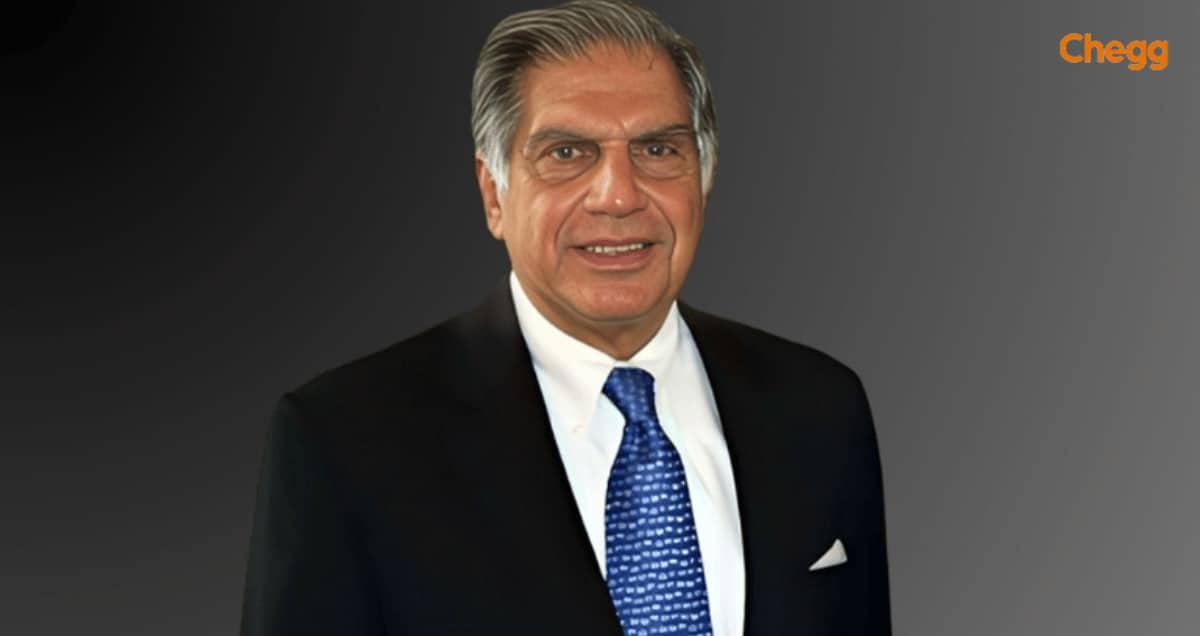Easy Guide on How to Apply for PhD in India
Doctor of Philosophy (PhD) is a higher research degree. It is given to people who submit a research thesis before a panel of experts. With a PhD degree, a student will be eligible for well-paying job openings for PhD holders in scientific research, academia, and teaching. The purpose of a PhD is to teach individuals […] The post Easy Guide on How to Apply for PhD in India appeared first on Chegg India.

Doctor of Philosophy (PhD) is a higher research degree. It is given to people who submit a research thesis before a panel of experts. With a PhD degree, a student will be eligible for well-paying job openings for PhD holders in scientific research, academia, and teaching.
The purpose of a PhD is to teach individuals how to conduct research in a field. Candidates learn how to write scholarly papers and present findings. They also learn skills like critical thinking, problem-solving, and communication. Candidates can teach others about their field of study or apply it elsewhere.
The decision to pursue a PhD is important. It takes a lot of time, effort, and money. But it is worth it if candidates love their field of study.
Benefits of Pursuing a PhD in India
Pursuing a Doctor of Philosophy degree in India has the following benefits:
- The PhD student gets some monthly allowances from the government to fund their research.
- A PhD student also enjoys a wide range of scholarships that the universities offer in addition to external fellowships and research grants.
- A student pursuing a PhD is contributing to the world of research with their thesis.
- PhD students also publish their papers and get patents for their work.
- While pursuing PhD, a student is seen as an expert in the field, making them eligible for some job openings related to teaching and research.
- In India, several PhD students go for exchange programs in their studies, which lets them understand the academic environment of other countries.
- A PhD student is their own boss, and they have complete control over what they want to study and how they wish to continue with their research.
- In India, several government universities like Delhi University, Jawaharlal University and Jamia Millia Islamia offer affordable PhD programmes to students.
- A PhD student does not have to look for job openings because they are a valuable asset to any university and get placed in good positions after they complete their studies.
- A PhD student gets to interact and work with the best academicians in their field and the professional experts who will guide them during their research.
Types of PhDs in India
- Fellow Program in Management (FPM) – This full-time program offers advanced study in management and other functional areas. It aims to produce fine academics, researchers, and teachers in management subjects. To get into the Doctor of Business Administration (DBA) program, a student requires a Fellow Programme in Management (FPM) similar to any Doctor of Philosophy qualification. The Indian Institute of Management (IIM)offers a DBA program.
- Doctorate in Pharmacy (Pharm D) – This program is a professional doctorate in pharmacy. The length of this program is six years. This degree consists of five years of academics and one year of internship. A student gets in-depth knowledge about all the subjects related to the type of pharmacy science they are pursuing.
- Master of Philosophy (MPhil) – This postgraduate degree in advanced research comes before the Doctor of Philosophy. In India, most universities provide MPhil degrees in the arts, sciences, and humanities. Others provide combined MPhil PhD degrees. Degree holders are free from the demands of doctoral coursework in combined MPhil PhDs.
Other crucial PhD degree courses include:
- PhD in Education
- PhD in Science
- Legal Profession Doctoral Program
- Health Professional Doctor
- Integrated Doctor of Philosophy
Details on PhD in India
The PhD (Doctor of Philosophy) is among the most respected academic degrees. It also sharpens one’s higher-order skills. The top careers in India after completing a PhD program are listed below.
In education:
PhD candidates can pursue academic careers. Academics is one of the preferred options for PhD candidates. PhD holders with jobs in academics teach, give lectures, create presentations, research, and oversee administrative tasks. They also represent the college at conferences and seminars. The academic sector is ideal for those who love learning and teaching, and there are many job openings here too.
Working as a consultant:
PhD candidates can pursue careers as management, technical, or business consultants. PhD holders can apply their skills and training in these jobs.
In the public sector:
Government agencies post special job openings for PhD holders for research work. The Reserve Bank of India and State Bank of India seek PhDs in economics, statistics, or mathematics. Firms like BARC, ISRO, and DRDO also post jobs for PhDs in physics, chemistry, computer science, or geology. Tata Institute of Social Science offers jobs to candidates with PhD in social science. Several high pay jobs for PhD holders are available within the central and state government.
As an entrepreneur:
In the last decade, India has become a hub for entrepreneurs. Professionals with a Doctor of Philosophy degree have a chance to start businesses using their business sense, research and skills. However, candidates who are not entrepreneurs should gain market experience with start-ups before launching their own.
Understanding PhD Programs
Candidates who want to apply for a PhD in India must have a full-time bachelor’s degree.
The candidate must have completed a Master’s degree (MTech/ MSc/ MA/ MPhil/ MBA). It must be a full-time Master’s course from a recognised university by the government.
PhD applications from correspondence Master’s degree holders are not accepted.
The overall grade point average of the candidate’s Master’s program must be at least 55% (or equivalent).
Candidates under SC, ST, and OBC categories will be given 5% or 10% mark relaxations. Applicants must present their reservation certificate to use these benefits.
The candidate must pass the PhD entrance exam.
A No Objection Certificate (NOC) from the educational institution or company where candidates are employed is required. Candidates must have job experience in a related field for a part-time PhD.

PhD Duration
To complete a PhD, a student takes between 3 to 5 years, depending on their field of study and rate of progress.
Candidates should remember a few things when starting a PhD program:
- Choose a topic they love
- Candidates should ensure a strong support network to help them through the program
- They should be prepared to work hard and dedicate themselves to their studies
Academic Years in PhD
A PhD in India takes three years to complete. Some universities specify a maximum registration duration of five years for PhD students. However, one can also study for a longer time depending on the type of PhD course they have enrolled on and their area of study.
Assessment and Examinations in PhD
All doctoral students must pass the PhD qualifying test. The exam shows their ability to blend their graduate program skills. The test is also known as the Preliminary Exam or Prelim. It takes at least a semester to prepare for this exam. It is tough to guess the type of questions.
PhD Fees in India
In India, a PhD costs INR 25,000 per semester. The cost of a PhD in India varies based on the kind of university a person chooses. Compared to private universities, semester costs of state universities are lesser. Some PhD candidates get scholarships. They are also given a concession as per their academic grades. If someone is doing a PhD in India, they should look for government universities as they provide affordable education.
Examples – In Delhi University, the fee for PhD is 5650 rupees. While in Jawaharlal Nehru University, the fee for PhD is Rs 731.
How to Apply for a PhD in India
If you are wondering how to apply for a PhD in India, then you are at the right place. Some colleges in India use admission portals to manage their applications. Others only take direct applications or advertise certain open positions.
Admission requirements
For a Ph.D. in India, a Master’s degree in the field one is seeking admission to is a must. The students should have an overall grade of at least 55% to be eligible for the application process.
Also, candidates need to have a command over the language for their course. Most Indian colleges teach English, one of the country’s official languages. However, certain specialized institutions also offer classes in Hindi, Urdu, and other regional Indian languages.
In India, there is no age limit for pursuing a Ph.D. Most Ph.D. programs take three to five years to complete. It is thus essential to consider one’s career goals.
The Indian PhD application process
The application process for a PhD in India is very competitive due to the fixed number of seats in Universities.
Each university releases its total number of openings for its PhD program every year. Universities take entrance exams, and interviews and review the research proposals of every applicant to find the best student for the seat. The institutions have the freedom to have a selection process of their own. They follow these basic steps for evaluation.
Notifications of PhDs
The institution will determine the number of entries for the PhD program. Then, these decisions are made public via official notification, and the announcement of different rounds of PhD admissions is also made public.
Research Eligibility Test (RET)
After a candidate responds to the notification released by the universities, the university begins the screening process. To qualify for PhD admissions, PhD candidates must pass the Research Eligibility Test (RET) in India. The universities check the potential of students applying for the PhD program through this test. The written exam verifies if the candidate has the relevant subject knowledge to conduct advanced research or not.
The contents of this test are specific to every university and the field of study a student is applying for. In most instances, universities use the curriculum of their master’s programme to set the syllabus for their RET test. It is advised that a student should check the application process and requirements for the RET before filling out the application for the PhD. In India, the PhD entrance tests such as NET/Gate/IIT JAM need to be cleared to become eligible for admission to the Doctor of Philosophy.
Interviews
A PhD interview follows a successful RET result. Universities publish information about applicants invited to interviews, the first leg of admission rounds.
They ask students questions about their backgrounds and experiences. Students must prove in the rounds that they are well-qualified and are best suited for the programme. In the interview process, an applicant is judged based on the answers they give to the interview questions.
In addition to this, the university will review and evaluate the applications. Other papers connected to the application are also examined. The interview information is published with specific requirements, and candidates must come with all the certifications required for the selection process.
Step-by-Step Process
A PhD is without doubt the highest level of education one can receive. Completing a PhD is a challenging and rewarding experience. It provides the skills and knowledge to become an expert in a chosen field.
Candidates must take the following seven steps to apply for a PhD in India:
Step 1:
PhD students should find a supervisor willing to support them through their PhD journey. After finding a supervisor, candidates can apply offline or online. Almost all colleges and universities accept online applications now. However, if you wish, you can apply via the offline process by visiting the office of the university.
Step 2:
Candidates must complete the online PhD admission form before applying on the university or college website. All the qualifying requirements listed on the university’s official website should be met. The online application is rejected if candidates fail to meet these requirements.
Step 3:
After completing the online application form, candidates must provide all necessary papers. These documents may include your passing certificate, degree, and migration certificate. Check the list of papers on the website before applying for the PhD admissions.
Step 4:
The college/university needs PhD entrance exam. This exam must be taken after completing the application form. Fill out the form for the entrance exam and appear for it.
Step 5:
Upon passing the PhD entrance exam, candidates will be invited for a doctoral academic interview. Admission is based on the academic doctoral interview and PhD entrance exam results. The institution or college decides the grades of students at each level.
Step 6:
Candidates who clear all rounds are invited to do PhDs in their chosen areas.
Step 7:
After all the admission requirements are met, candidates should complete all the formalities and begin their studies.
So, these are the steps to apply for a PhD in India. Candidates should read all the university guidelines well.

Chegg hiring can provide specialized and online opportunities to people doing PhD in India. Furthermore, Chegg Expert Hiring will allow one to clarify the principles and fundamentals and solve answers for students to succeed in the exam. This will benefit a PhD student or applicant as it will brush up on their basics every time they answer a question. In addition to improving one’s problem-solving skills, it will provide a student with additional income. So sign up with Chegg India today!
Want to explore numerious options for your career path? Dive in to our guide on Career Options.
Frequently Asked Questions
Q1. How much does a PhD in India cost?
Ans. In India, a PhD costs INR 25,000 per semester. The cost of a PhD in India differs based on the kind of university people choose. The cost of a PhD program depends on the institution and field of study.
Q2. What is the duration of a PhD in India?
Ans. A PhD program lasts for three to five years. Candidates have a maximum of five to six years to finish the program. The course length may be different for different institutes.
Q3. What are the eligibility criteria for a PhD in India?
Ans. For admission in PhD in India, students require a Master’s degree in a relevant field. An overall grade point average of at least 55% (or equivalent) is required. In addition to this, candidates must know the language in which the course is taught and evaluated. Now, an MPhil degree is not a must for PhD admissions.
Q4. Is it easy to get a PhD in India?
Ans. Getting a PhD in India is not easy. Candidates pursuing PhDs in India must pass the Research Eligibility Test (RET), such as NET. This written exam checks if they have the relevant subject knowledge to conduct advanced research. Candidates must further clear a PhD admission exam. After this, they must pass a doctoral academic interview. Candidates must clear these rounds before pursuing PhDs in their chosen areas of specialization.
The post Easy Guide on How to Apply for PhD in India appeared first on Chegg India.


















/cdn.vox-cdn.com/uploads/chorus_asset/file/25115065/DCD_Avishai_Abrahami.jpg)







